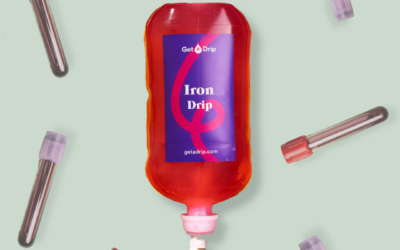
Do you know the historical significance of Vitamin C? From preventing scurvy among sailors to its contemporary reputation as a powerful antioxidant, the journey of Vitamin C through scientific discovery has been nothing short of remarkable.
Vitamin C, or ascorbic acid, is a water-soluble vitamin. This means that it dissolves in water and is delivered to the body’s tissues but it is not well stored. Therefore, it must be taken daily through what we eat and drink. Vitamin C provides many valuable benefits such as maintaining the normal function of the immune system, normal collagen production, contributing to the reduction of tiredness and fatigue, and so much more!
Did you know that Vitamin C can work as a natural antihistamine? Vitamin C may lower the total amount of histamine your body produces and lower histamine levels result in improved hay fever symptoms! As Vitamin C is a natural antioxidant, it helps contribute to the protection of your cells from oxidative stress. This may help reduce inflammation that has been caused by repeated coughing and sneezing. To read more about Vitamin C’s antioxidant properties, click here.
Who is at risk of developing a Vitamin C deficiency?
You face an increased likelihood of developing a Vitamin C deficiency when your dietary intake is insufficient or when you follow a highly restrictive diet with limited sources of Vitamin C.
The following groups of people more likely to develop a Vitamin C deficiency:
- People with a severe digestive condition e.g Crohn’s disease
- Elderly people
- People addicted to drugs and/or alcohol
- Those with limited access to fresh produce
Adults aged 19 to 64 need 40mg of Vitamin C a day. As Vitamin C cannot be stored in the body, it is important to maintain Vitamin C levels. Keep reading to find out common signs of a Vitamin C deficiency as well as ways to help prevent it!
Common signs of a Vitamin C deficiency include:
- Fatigue and weakness
- Irritability
- Pain in the muscles and joints
- Swollen or bleeding gums
- Nosebleeds
- Blue or red spots on the skins
- Easy bruising
- Slow healing wounds
Scurvy is a disease that is caused by not having enough Vitamin C in your diet for at least three months. Although it is rare for a Vitamin C deficiency to progress to scurvy, if you are experiencing any of the above symptoms, please speak to your GP.
How to help prevent a Vitamin C deficiency:
As the body’s supply of Vitamin C typically diminishes within a span of 4 to 12 weeks upon initial intake, it is important to regularly maintain our Vitamin C levels. The functionality of ascorbic acid is susceptible to various factors that can hinder its absorption and proper operation. In order to avert the onset of a Vitamin C deficiency, one the most effective approaches is to eat foods that are high in Vitamin C!
Foods high in Vitamin C include:
- Citrus fruits such as oranges and orange juice
- Peppers
- Strawberries
- Blackcurrants
- Broccoli
- Brussels sprouts
- Potatoes
Another quick and easy alternative to increasing your Vitamin C levels involves acquiring our High Dose Vitamin C Drip! By going directly into your bloodstream, it bypasses your gut allowing optimal absorption of those vital nutrients, unlike oral supplements.
With our High Dose Vitamin C Drip you can choose from 6.25g up to 25g for maximum antioxidant and anti-inflammatory effects, alongside major skin benefits. See below for our price ranges!
6.25g Vitamin C – £125
12.5g Vitamin C – £150
25g Vitamin C – £225
Other Vitamin Drips that include Vitamin C are: Detox Drip, Double Detox Drip, Limitless Drip, MultiVit Drip, Skin Health Drips, Immunity Drip, or have it as an IV Drip Extra!
Vitamin C FAQs:
What is Vitamin C?
Vitamin C, or ascorbic acid, is a water-soluble vitamin. This means that it dissolves in water and is delivered to the body’s tissues. Vitamin C provides many valuable benefits such as maintaining the normal function of the immune system, assisting normal collagen production, contributing to the reduction of tiredness and fatigue, and so much more!
Who is at risk of developing a Vitamin C deficiency?
- People with a severe digestive condition e.g Crohn’s disease
- Elderly people
- People addicted to drugs and/or alcohol
- Those with limited access to fresh produce
What happens if I take too much Vitamin C?
Taking large amounts of oral supplements of Vitamin C may cause:
- Stomach pain
- Diarrhoea
- Flatulence
These symptoms should disappear once you stop taking oral Vitamin C supplements.
Which Vitamin Drips contain Vitamin C?
High Dose Vitamin C, Detox Drip, Double Detox Drip, Limitless Drip, MultiVit Drip, Skin Health Drips, Immunity Drip or have it as an IV Drip Extra!


